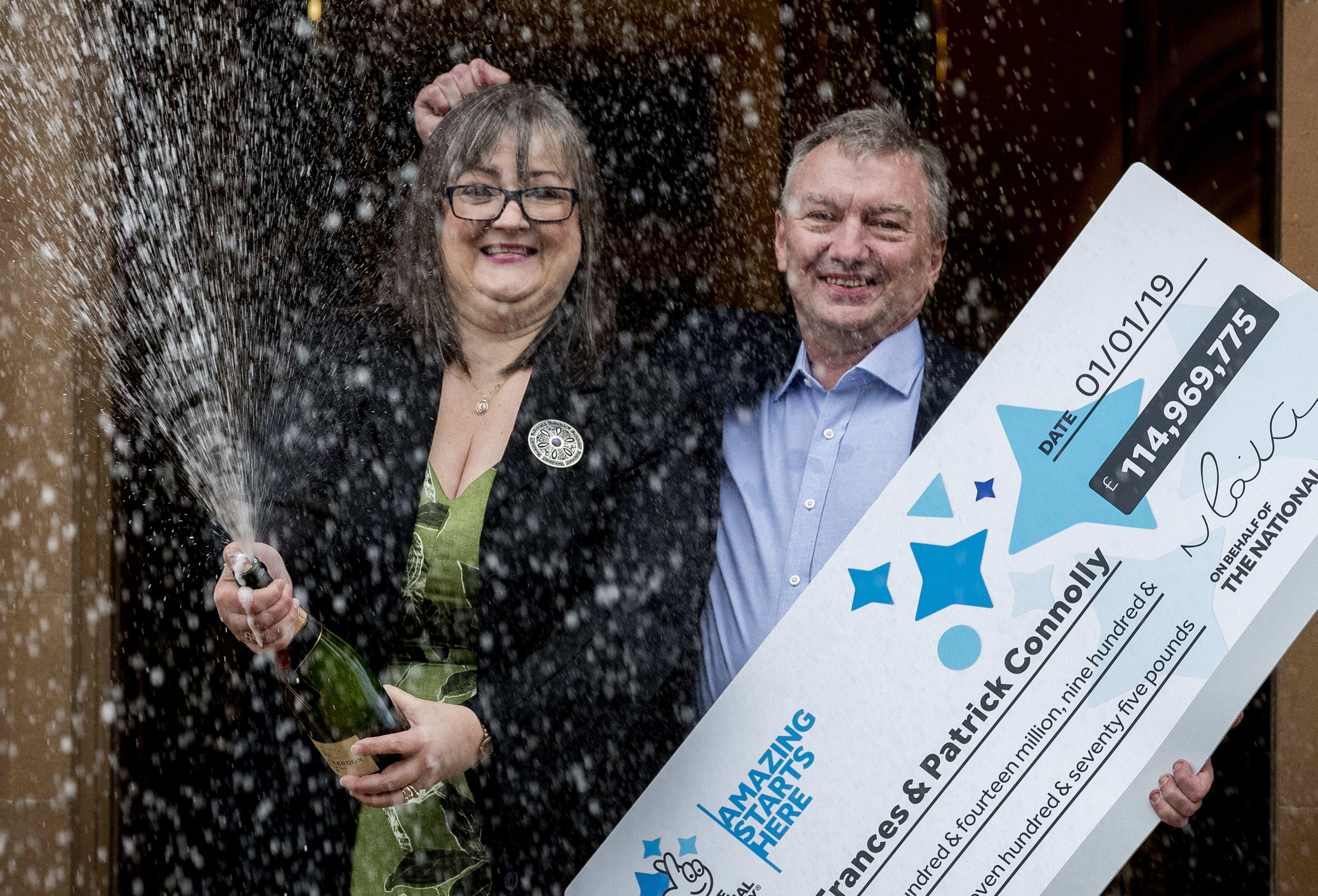
Joe and Jess Thwaite will have plenty of decisions to make over the next few weeks and months.
The couple, from Gloucestershire, have just been revealed as the winners of the UK’s biggest ever lotter jackpot.
The pair – him a 49-year-old sales engineer, her a salon owner, aged 44 – scooped more than £184 million in the EuroMillions last week.
Now, they will almost certainly be pondering the kind of questions many of us dream of wrestling with. Where to go on holiday when the entire world is suddenly within budget? Just how many bedrooms their dream home might have? Is buying entire Caribbean island a good use of money?
But they’ve already made one key decision – by going public with the news of their good fortune. And that, it seems, puts them in a minority.

Some 80 per cent of big lottery winners in the UK stay anonymous, according to Camelot, the organisation which runs the UK National Lottery.
So why do so many winners shy away from lauding their new wealth? And why do the 20 per cent go for the champagne-for-the-cameras reveal like Joe and Jess?
“I think people have had this huge life-changing experience and they want to celebrate it rather than hiding it,” says Andy Carter, senior winners adviser with Camelot. “They want to be free to be transparent and open with friends and family about what has happened. It’s a lovely thing, certainly nothing to be scared of.”
Taking the offer of a press conference allows winners the opportunity to do all media interviews in one afternoon and then move on, the company says.
“You get to control the entire process,” Carter adds. “By not going public, the moment you start telling a few people about the win, there is always that possibility that it gets out and you suddenly have reporters turning up at your door.”
Camelot, of course, would say that. It’s clearly in the company’s interest to get maximum publicity for winners.
“They are selling a dream,” says Ashlea McConnell, a PR consultant based in Sheffield. “And what better way to sell it than have a lovely everyday person telling their story of how they suddenly won this eyewatering sum of money? It is absolutely the sort of story that will have others buying tickets week in and week out.”
Would she advise people to go public? It depends on the circumstances.
As someone who specialises in managing publicity for clients who have won multimillion-pound compensation claims following legal rulings, she says there is often a desire among her clients to publicise their success to highlight that the payment is deserved, hard-won and, above all else, possible.
But scooping an entirely chance-based lottery is different.
“I think, if you are going to splash the cash as a lottery winner, there is probably an element of ‘you might as well get it out there’,” says McConnell. “But so many people seem to want to continue living as they always had done, albeit more comfortably. For them, I’m not sure there are too many benefits of going public.”
Stories of begging letters and fears of being targeted by criminals do put many off, anecdotal evidence suggests. The thought of jealous neighbours (or friends) turns others away from the idea. The suggestion that newspapers will revel in any future downfall may be another deciding factor, such as reports of so-called “lotto lout” Michael Carroll’s bankruptcy.
Yet despite all this, former winner Elaine Thompson remains a big advocate for telling the world.
The former supermarket assistant from Newcastle won £2.7m in 1995 – back when £2.7m wasn’t just about enough to cover your annual fuel bills.
She decided to announce it at a press conference because she didn’t like the thought of hiding it.
“I’ve never seen so many cameras as that afternoon,” the 66-year-old recalls. “I had my husband and brother with me but they were both struck dumb so I had to do all the talking. That’s never been a problem, mind.”
The mother of two, and now grandmother of two, started some hospitality businesses, bought a new house and gave money to her brother. She ensured her two children left university with no debt.
“I’m a hard-working woman from the northeast and having a few more quid never changed that,” she says. “Buying that ticket was one of the best things I ever did.”







